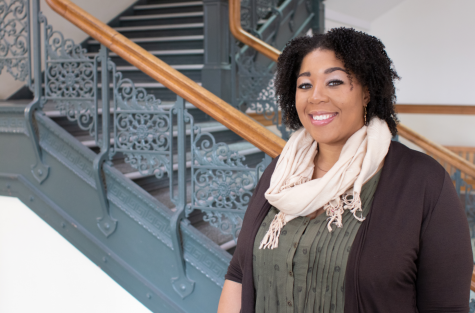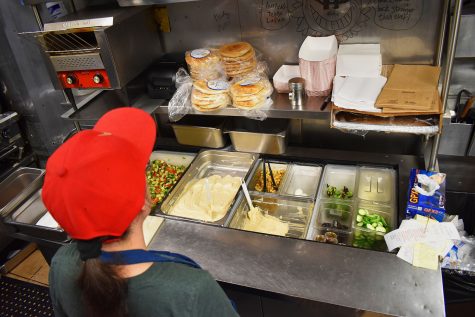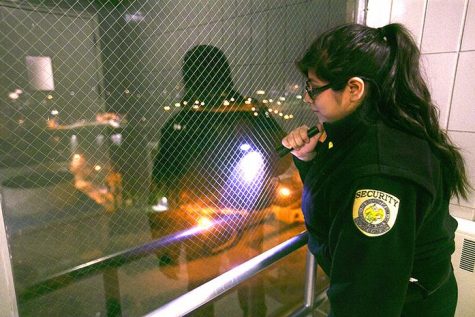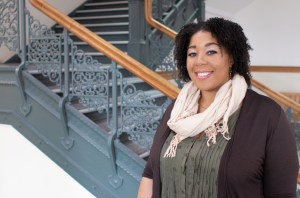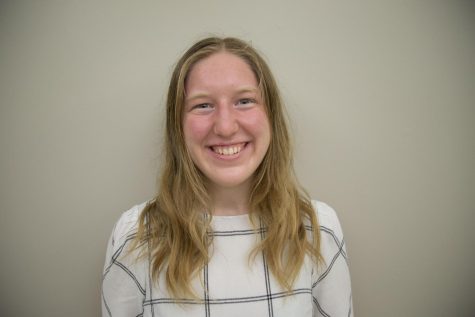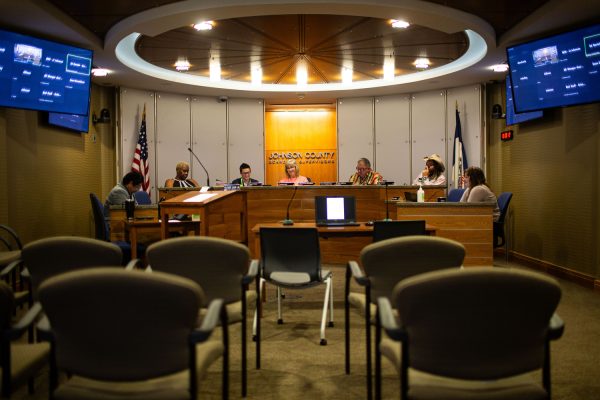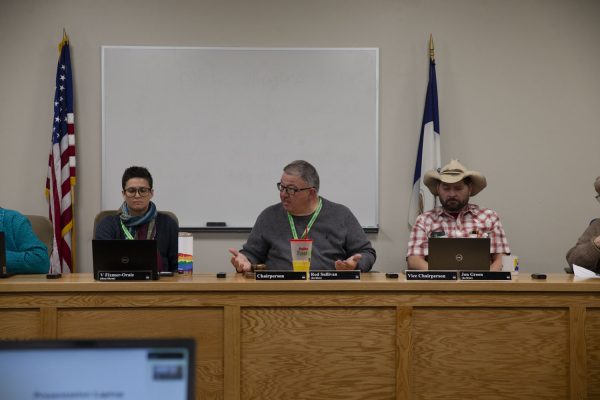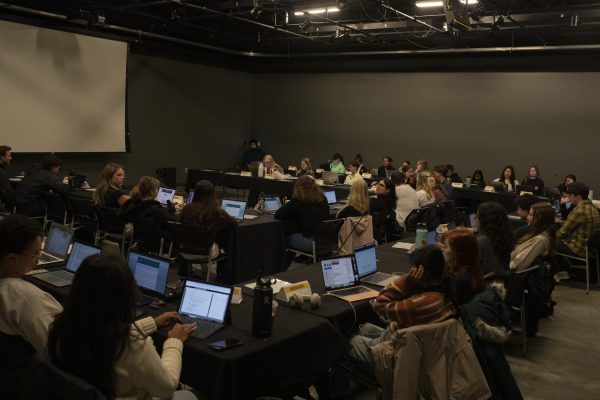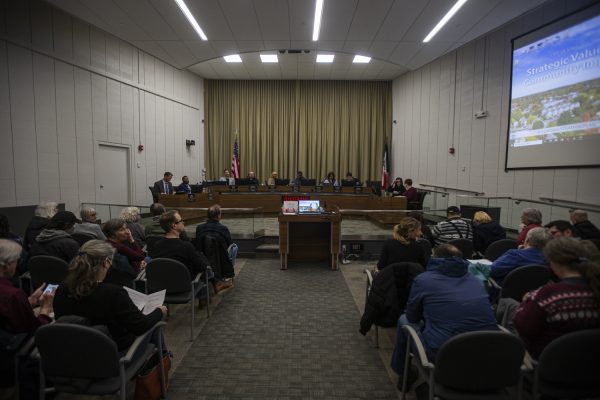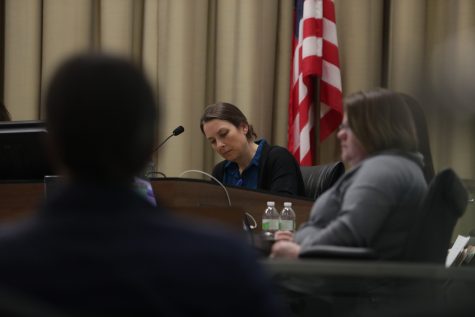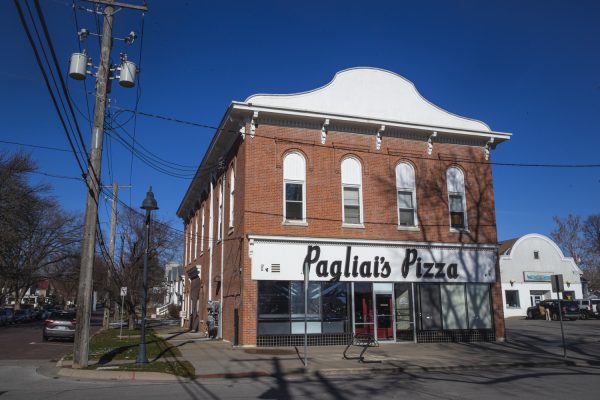Student-led group confronts drug-use in Iowa City, advocates legalization of syringe services
The IHRC, co-chaired by UI student Sarah Ziegenhorn, will host its third-annual summit this week to educate the Iowa City community about needle exchange programs and prevention of drug-related disease.
Sarah Ziegenhorn stands for a portrait at the Daily Iowan newsroom on Sept. 23, 2018.
September 23, 2018
The Iowa Harm Reduction Coalition will hold its third-annual Harm Reduction Summit this week, featuring events and lectures by experts in U.S. drug crisis and overdose, as well as people with direct experience using drugs or dealing with the program.
Cofounded by UI Carver College of Medicine student Sarah Ziegenhorn, the coalition advocates for the legalization of syringe-service programs in the state and provides health services to drug users in the community.
“We are now the largest distributor of Naloxone to drug users at risk in Iowa,” said coalition co-chair Daniel Runde, a UI clinical associate professor of emergency medicine. “Sarah makes it happen, even when people tell her this kind of implementation is not possible.”
According to the coalition’s website, the medication Naloxone reverses opioid overdose and does not require prescription or insurance.
The group hopes to push its legislative agenda, which primarily advocates for the legalization of syringe-service programs, safe housing for drug users, and medically assisted therapy.
Runde said the drug-using community often shows no interest in going into a health building, so the coalition can be an organization in which they feel safe to seek medical care.
In its two years of existence, the organization has faced skepticism for sympathizing with drug-users, but Runde said syringe services are proven to decrease diseases that would otherwise cost the state for treatment while not increasing drug use or drug-related crime.
“We understand that people are going to make their own decisions,” coalition community and volunteer organizer Tiffany Carter said. “We can’t change those decisions, but we can make sure they do so in the safest way possible.”
Syringe-service programs have been legalized in 36 states, she said, with positive results.
The upcoming summit will be primarily educational with panel discussions featuring researchers, law-enforcement officials, and experts in the area.
Acting as a link between the drug-using community and access to public health, the coalition makes cautious efforts to abide by state law, providing supplies and services only so far as it allows in an effort to prevent HIV and Hepatitis C.
Carter said this relationship of trust is among one of Ziegenhorn’s biggest accomplishments, and, as the group’s co-chair, she has established herself as a leader and expert in a large network of highly educated professionals.
“I worked at a syringe-services program in Washington, D.C., and was able to see firsthand how it impacted … so many lives,” Ziegenhorn said. “I established the [coalition] to disprove everyone who thinks Iowa is too rural, too conservative, or too Midwestern for its own needle exchange.”
RELATED: Harm-reduction advocates await needle exchanges
In response to belief that the coalition has stirred controversy, Ziegenhorn said the only major criticism come from public-health figures.
“Legislators and law enforcement are pragmatic and realize that legal syringe programs will ultimately make for a safer public,” Ziegenhorn said. “An exchange program would be peer-serviced and not require health professionals, threatening their credibility.”
Because of the Iowa City health department’s proximity to the court system, many drug-users in the community do not feel safe seeking out treatment.
“A community where drug-users feel welcome and loved and supported medically has not been done in Iowa before,” Ziegenhorn said. “In an ideal world, a local health department should be somewhere anyone can go.”
To bridge the gap between drug-users and medicine, the coalition meets them in their own environment, including the street, bars, under bridges, etc.
“We started as a small group of folks doing street-based global outreach,” Ziegenhorn said. “Now, we have distributed over 5,000 overdose prevention kits in 15 months and reports of over 300 lives saved.”




